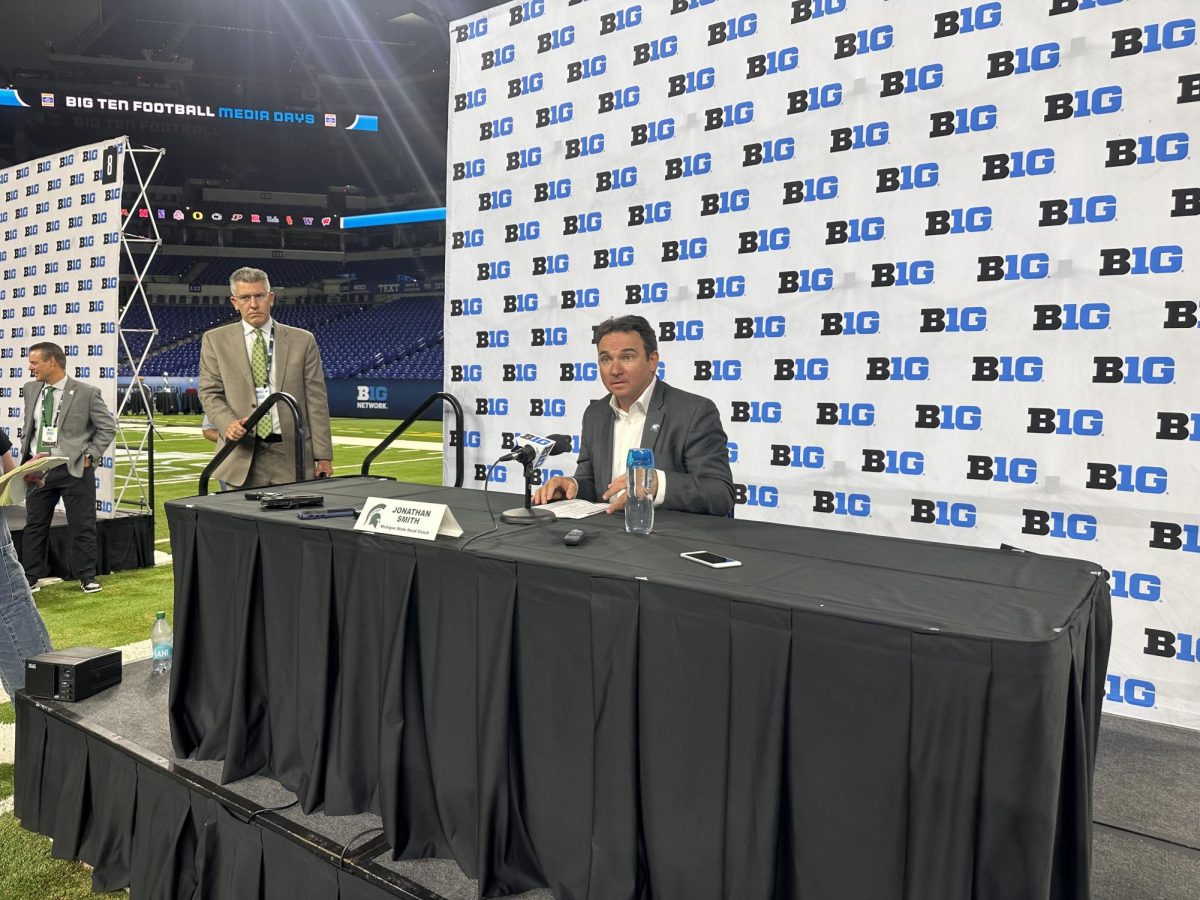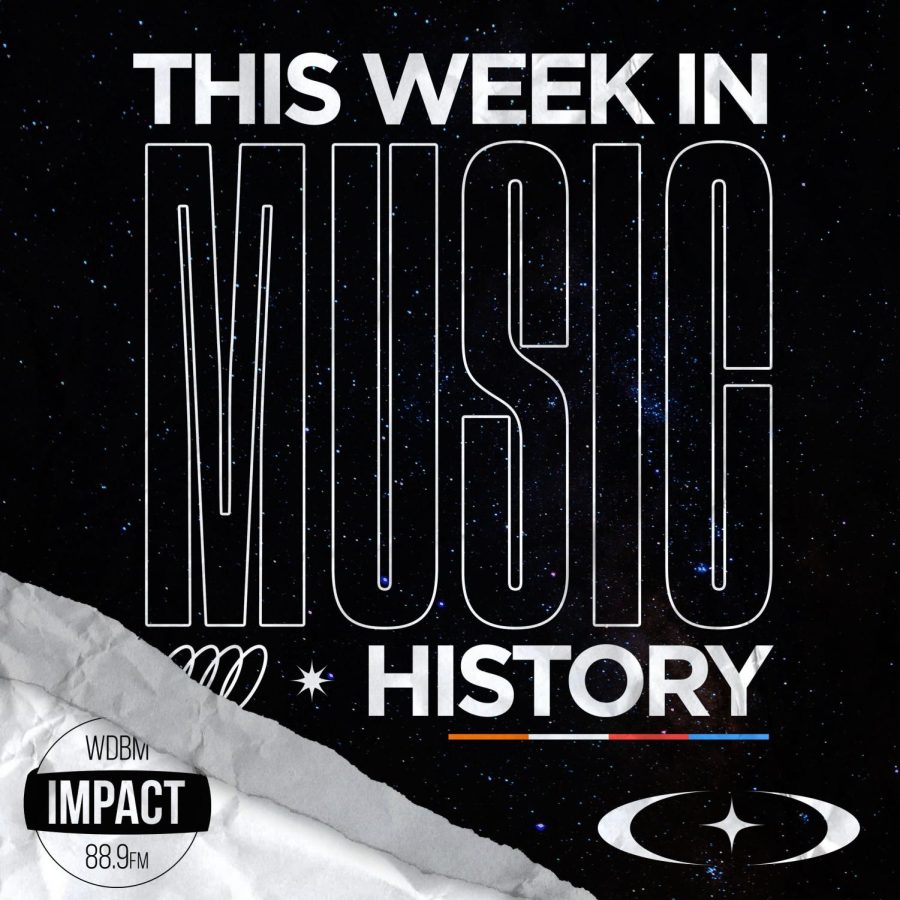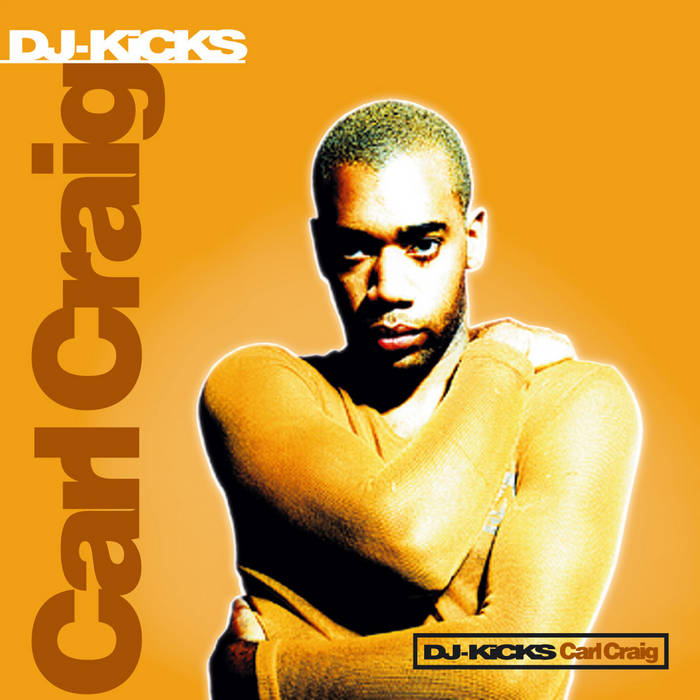I would have to argue that everyone knows at least one Led Zeppelin song — at least one. And chances are that song came from Led Zeppelin IV.
Led Zeppelin released Led Zeppelin IV on Nov. 8, 1971, as their fourth studio installment. It was also their fourth self-titled release. This album had some inherent similarities to what made them Led Zeppelin: Plant’s unignorable screaming vocals, Page’s shreddy but bluesy licks, Jones’ thumping bass lines and, of course, Bonham’s self-established beats.
The album rose to No. 1 in the U.K. and remained there for 90 weeks. It also peaked at No. 2 in the U.S. and was the best-selling album of 1971. It would go on to become their best commercial success and most legendary work to date.
Most of the album was recorded in Headley Grange, which was a former workhouse that had been converted by the band as a sort of musical refuge. The place was encased in gothic architecture and ivy-covered towers, serving as an inspiration for the band. Bonham’s booming sound thrived here, with massively open halls and natural acoustics the band used to their recording advantage. The pure beauty and almost isolated atmosphere served as a gateway to some of their more creative works, especially “Stairway to Heaven” or “When The Levee Breaks.”
It is no secret that the band regularly touched on grand battles and even The Lord of The Rings, and they continued this theme throughout their fourth installment. “The Battle of Evermore” is a perfect example. Plant explored ideas around the Scottish Independence Wars with his lyrics, and Page used a mandolin instead of a guitar to further the sound of the track.
However, the band made it evident that they wanted to turn the volume up on this one. They prompted Bonham to be even louder and create a feeling of pure power. “When The Levee Breaks” is a prime example where Bonham’s drums drive the song and Page provides an eerie element with his guitar playing. The song was actually about the great Mississippi flood and was originally a country folk song written by Memphis Minnie, but it was creatively reworked by Zeppelin. My favorite part about every Zeppelin song on the record is that there is always an underlying meaning and a story to be told.
There was also a genius element felt throughout this release, and this is prominently found within “Stairway to Heaven.” This song would go on to become their most popular, and it featured a complex twelve-string acoustic riff accompanied by vocals touching on a mystery woman who essentially took everything from Plant. About halfway through the song, Bonham kicks the drums in, increasing the build, and eventually an epic guitar solo ensues. Trust me, you’ve heard it — even if you don’t remember it.
Led Zeppelin IV is an essential part of rock ‘n’ roll and will outlive us all. I don’t think I could ever adequately portray the true creative genius that every member of the band contributed to this album. It is by far the most exciting album they have released, and if you haven’t played it in a while, give it a listen for the anniversary of the release, because I’m sure you’ll add a few songs to your playlist.
– Ian Randall
In the three years following the release of her debut album, Tidal, Fiona Apple became one of the biggest and most controversial breakout stars of the late ‘90s. Musically, her debut was a huge success. The album was certified 3x platinum by the RIAA and its biggest single, “Criminal,” garnered Apple her first ever Grammy. Her “heroin-chic” look and infamous “This world is bullshit” speech at the 1997 VMAs, however, made her quite divisive to the public.
Nov. 9, 1999, brought the release of Apple’s sophomore album, When the Pawn…. The full title, comprised of 90 words, once held the title for longest album title in music history. While not as commercially successful as her debut, the 10-track When the Pawn… proved Apple was here to stay. Her elevated lyricism and production by Jon Brion mixed to create a masterpiece that only becomes better with time.
The track list is filled to the brim with some of Apple’s best work ever. Most recognizable is “Paper Bag,” the album’s third and final single, but the album’s highlights can be found in the deeper cuts. “Limp,” “Get Gone” and “Love Ridden” are career highlights, but “I Know” is the album’s real centerpiece. The five-minute ballad is heart-wrenching and closes the album off on a depressing yet excellent note. Every song is distinct and unique, but Apple still managed to create a sonically cohesive experience.
It is a testament to Fiona Apple’s talent and legacy that now, 24 years after the release of this album, people are still discovering and falling in love with it. There is an argument that could be made for each of Apple’s albums being her best, but When the Pawn… is a clear standout in a discography full of perfect albums. It is an artistic high that all artists should attempt to reach.
– Ryan McMillan
When it comes to women in music, nobody has been quite as influential as Madonna. The album that truly pushed Madonna to become a music icon was Like a Virgin, released Nov. 12, 1984.
Prior to release, the album had already garnered much controversy due to her iconic performance of the song “Like a Virgin” on Sept. 14, 1984, at MTV’s VMAs. The legendary performance featured Madonna on a wedding cake wearing a wedding dress topped off with a veil and belt buckle with the words “boy toy” on it.
To round out the performance, Madonna began to touch herself and roll around the stage. For the time period, the VMAs performance was something never before seen and received much backlash from older generations. Conversely, young women of the time ate up Madonna’s music and performance as the album Like a Virgin soon would top the charts.
On Feb. 9, 1985, Like a Virgin hit No. 1 on the Billboard 200 and, in July of 1985, went on to be the most successful album ever released by a woman in the United States, being certified 10 times platinum.
It’s hard to deny the impact this incredible album had on music and culture. It has inspired countless women to become musicians themselves, also helping many women express themselves in different ways. With selections like “Material Girl” and the title track, Like a Virgin has had a lasting impact on how we see women in music. To this day, it remains one of the most groundbreaking albums of all time.
– Alex Jimenez-Vega







































